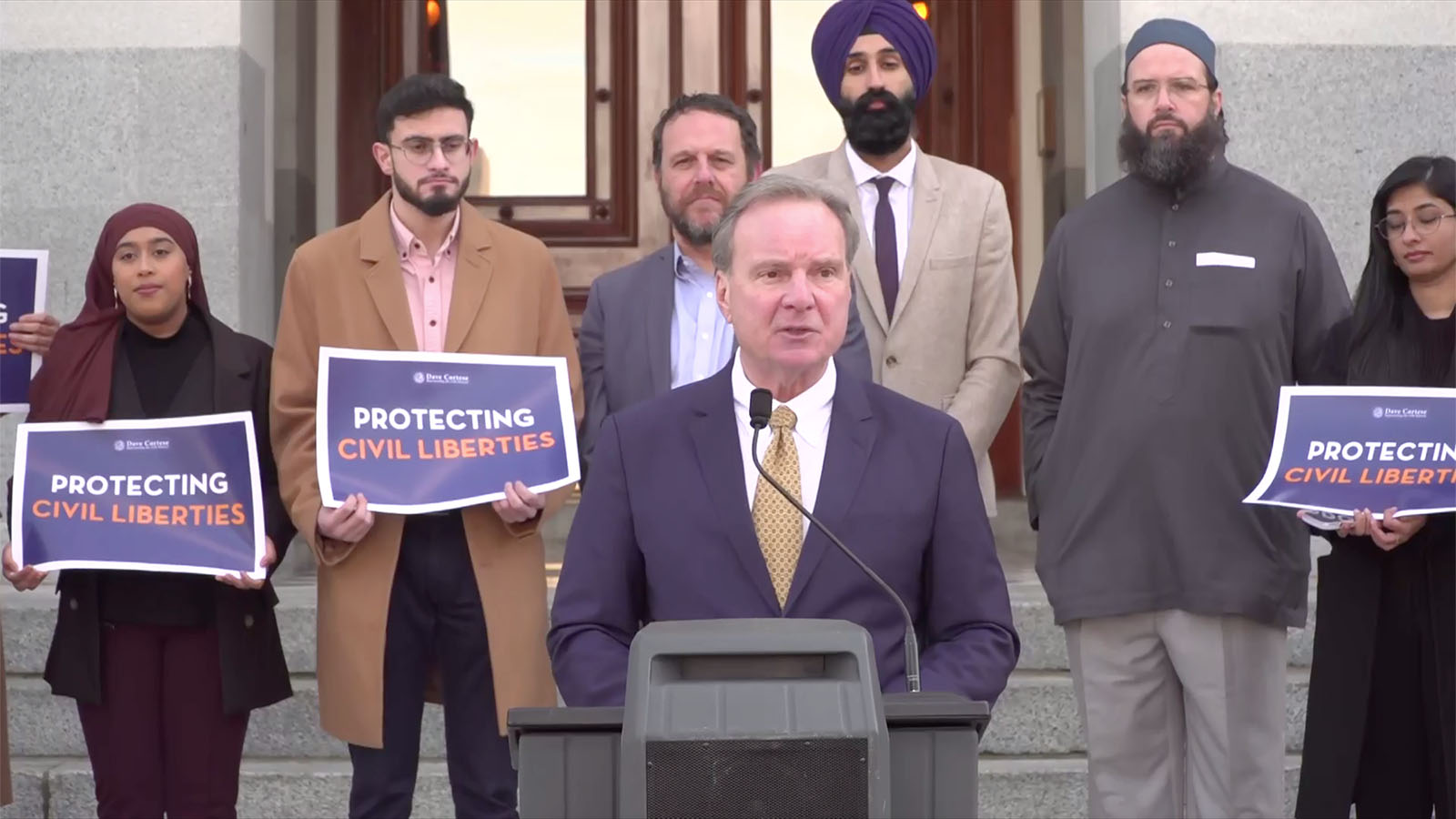(RNS) — Rami Nsour, an advocate for the incarcerated, has viewed firsthand how difficult it can be for all those getting held in California’s jails and prisons to apply their faith. As his purchasers are transferred from a person facility to one more, he explained, they have to adhere to unique policies governing religious apparel and grooming.
On Monday (Feb. 6), Nsour joined California lawmakers and multifaith leaders as they unveiled legislation that would make a statewide policy for spiritual garments, headwear and grooming procedures at condition and neighborhood correctional and detention facilities.
“Protecting prisoners’ liberty of religion should really not be viewed as coddling the inmates or ‘hug-a-thug’ society, two phrases I deplore,” reported Nsour, who co-started the nonprofit Tayba Basis to help all those impacted by incarceration. “Protecting that right is upholding our oath to the Structure.”
Written by Sen. Dave Cortese, a San Jose Democrat, the monthly bill, SB 309, aims to “stop incidents of religious persecution in jail,” the senator claimed in the course of a press convention exterior the point out Capitol on Monday.
Though California Division of Corrections and Rehabilitation insurance policies refer to the correct to dress in sure spiritual apparel and headwear, these rules are in outcome only at condition-run services, in accordance to a point sheet about the proposed monthly bill. Detention services in area jurisdictions have a vast variety of guidelines and strategies.
Furthermore, the state’s section of corrections and rehabilitation only delivers “minimal protections” and “does not fulfill the heightened protections as offered beneath federal legislation,” in accordance to the truth sheet.
The laws will reward not only prisoners but all Californians, Cortese explained, pointing to study showing that inmates who are permitted to “freely training spiritual observe and dress” are considerably less very likely to be included in violent incidents when serving their sentence and are less likely to return to jail or prison.

California Point out Senator Dave Cortese, joined by multifaith leaders, unveils a invoice that would build a statewide plan for spiritual clothing, headwear and grooming methods between incarcerated individuals in point out and neighborhood correctional and detention services, Monday, Feb. 6, 2023, in Sacramento, California. Video display screen grab
“Californians even now retain their simple civil legal rights when they turn into incarcerated. We have to have to stand for that,” Cortese reported. “Muslims, Sikhs, Jews and other spiritual minorities should really preserve their legal rights to religious dress and apply with out hurt or disruption.”
Connected: Muslim woman sues Los Angeles Police Section for forcibly getting rid of her hijab
Nazeehah Khan, with the California chapter of the Council on American-Islamic Relations, said the organization has represented various Muslim girls in the condition who have been stripped of their hijab, the standard Islamic headband, when incarcerated or in custody. These situations have resulted in Prolonged Seashore, Orange County and Santa Clara modifying their policies, CAIR explained in a statement.
“While these scenarios have been prosperous, the underlying issue of non-uniform insurance policies addressing spiritual attire exists all through the bulk of the condition,” Khan claimed. “Religious headwear, outfits and grooming are not just acts of religious expression. They’re the manifestation of a person’s identification, an embodiment of their values.”
Jasjit Singh, board president of the Jakara Movement, spoke in guidance of the bill, simply because, “for Sikhs, putting on our turbans is an integral section of practicing our religion.” Turbans, he said, “are section of our bodies. We are inseparable.”
For Singh, religion communities are a critical community of guidance for prisoners, and “that can enjoy an crucial function in easing a prisoner’s changeover back again into communities.”
Rabbi Seth Castleman, director of the spiritually based mostly mentoring plan Exodus Undertaking, mentioned he has witnessed the religious legal rights of folks taken away although incarcerated.
“We need to be supporting the religious exercise of people today as a tool for decreasing recidivism,” Castleman explained in the course of the information conference. “These are the bedrock values of our country and something that both equally conservatives and liberals can get guiding, the spiritual independence of all people.”
According to Nsour, the laws announced Monday is not about “supporting a self-help program” entirely simply because of the affect it could have on the “desistance of crime.”
The bill, he reported, “is about reminding us who we are as Us residents — that every single single particular person on this land, no matter if in jail or not, has the suitable to freely apply the religion of their preference.”
